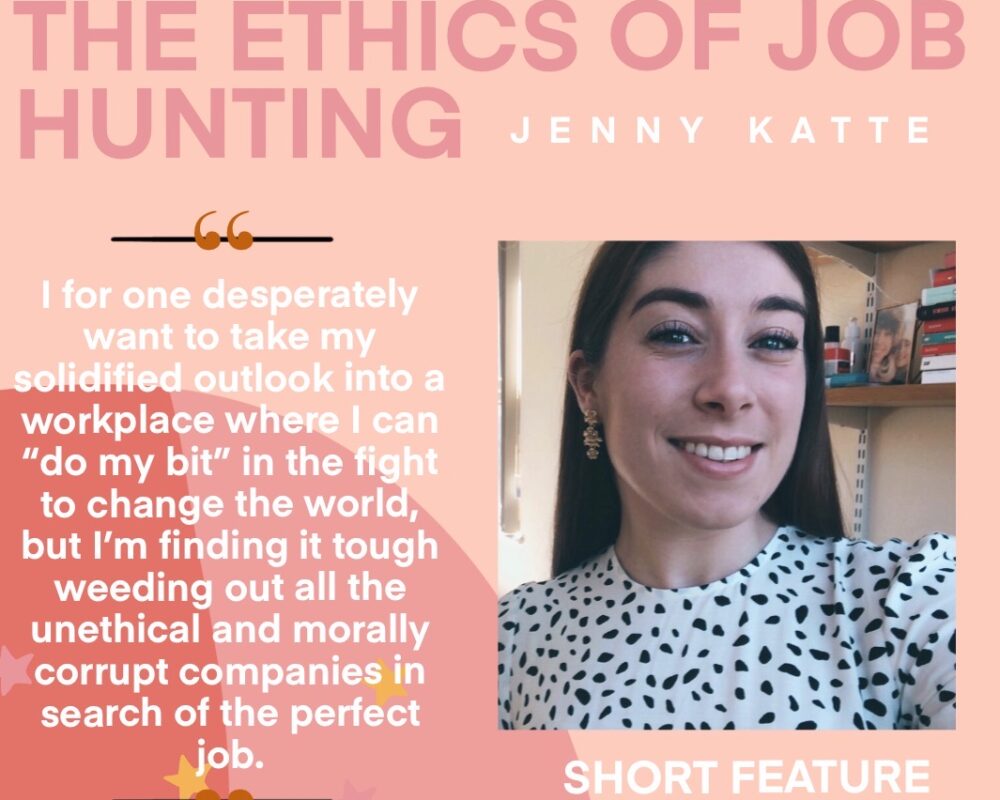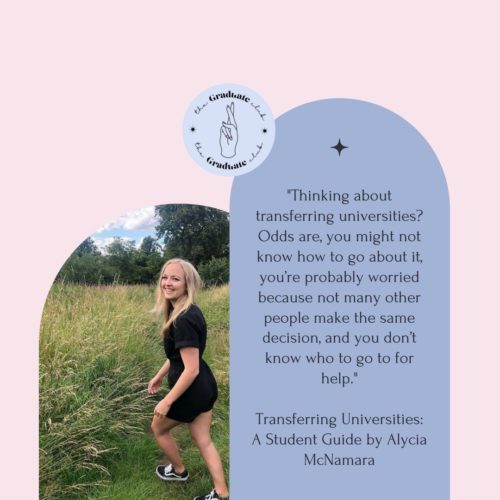Words by Jenny Katte
I’ve recently come to terms with the fact that when I (virtually) graduate, I’ll have officially left the physical and metaphorical crucible where many of my current ethics and values were shaped. I for one desperately want to take my solidified outlook into a workplace where I can “do my bit” in the fight to change the world (cringy I know), but I’m finding it tough weeding out all the unethical and morally corrupt companies in search of the *perfect* job. Some may call me idealistic, whilst others may call me naïve; does this job even exist? And if so, will I even be called in for an interview?
Upon deciding that I would dedicate my job hunt to finding an ethical job, the first hurdle I had to overcome was a mental one; I realised that I was pigeon-holing social issues and disregarding job opportunities related to those I didn’t feel connected to. Since, I’ve come to understand that all social issues are interwoven in a mangled web of morally corrupt social structures. If you scratch the surface, you can probably find links between apparently unrelated issues – e.g. environmental racism refers to the disproportionate impact of environmental hazards on people of colour. When exploring the intersections between social justice issues, it may just be that you find your niche, and maybe even come up with your own idea for a business or charity down the line. Alternatively, you’ll realise that when you take on a “make a difference” job, you are acting in support of many different causes by dismantling part of that hideous web. Of course, gunning for a job in one sector is fine, but if you can’t get there immediately, don’t beat yourself up and try broadening your horizons a little.
It may also be a good idea to think about the industry where your passions lie. The fashion industry, for example, has a pretty bad rep for being terrible at ensuring their garment workers are paid a living wage and checking their environmental impact. Fast fashion suppliers have a lot to answer for in terms of social justice issues – just look at brands such as Boohoo and Topshop and how they’ve continually “forgotten” about their obligation to be at all ethical in their business practises. However, not all sub-sections of the fashion industry are part of the problem. When you look past the big brands and start seeking out smaller, up-and-coming retailers, there are loads of ethical, often independent, companies which operate according to more ethical business plans.
Having said that, it’s still vital that you check each company out before applying; Do they have an inclusive hiring policy? How do they mitigate their environmental impact? Have they put in effort to make sure their work premises are accessible? I compel you to ask these questions of any potential employer if you get the chance! However, before you ever come face to face with a member of their HR team, do some googling, read some articles and talk to people in the know. It may be that you already know Google’s answer to a question like, ‘how does your company ensure that you are making a positive impact on the local community?’, but the answer of someone who works there may be very different or give you more detail about their perspective on an issue which is important to you. And if not, you’ve shown your interest in the inner workings of the company and demonstrated that you’re dedicated to upholding the brand’s ethical image. It’s a win-win.
Also, think about the role you’re applying for. It may be that you look for a job on the inclusion and diversity team at a company which hasn’t historically or publicly made their position on social justice issues known. You might find out upon arriving at an interview that their policies are nowhere near robust enough to satisfy your moral conscience. At this point you have two choices: walk out the door and never look back or go for it and make a career for yourself moving up the command structure until you’re in a position to influence their policy and practice from the inside. It’s the “keep your friends close and your enemies closer” tactic. I realise that this approach takes commitment and is somewhat of a long-term mission, but for the right person with the kind of determination it would take, it’s a very commendable goal.
Alternatively, you could look closer to home if you aren’t looking to move anytime soon. Local councils and charities can use people who know the community. Besides, who understands the social issues facing a town or city better than someone who’s lived there for years? You may have to do some personal reflection on your experiences living in this particular place in order to pin-point where you’d like to direct your efforts, but nowhere is perfect, there’s bound to be an aspect of your community which could use your support. If the paid roles are few and far between, volunteering is also a great option. It may be that you have to take on one or two part-time jobs to back this to begin with, but you may find that the organisation recognises your commitment and offers you a paid role if the funding becomes available in the future.
I think what I’m trying to say is that finding a job post-graduation that lives up to lofty ethical standards is going to be hard, but not impossible. It may take some long-term planning or sacrifices in the short-term, but these roles do exist. I think the key here is to think outside of the box and back your morals to lead you to where you both need and want to be professionally. For some further reading, take a look at this article from The Guardian: https://www.theguardian.com/careers/how-find-ethical-organisation-work-for-advice.





Leave a Comment